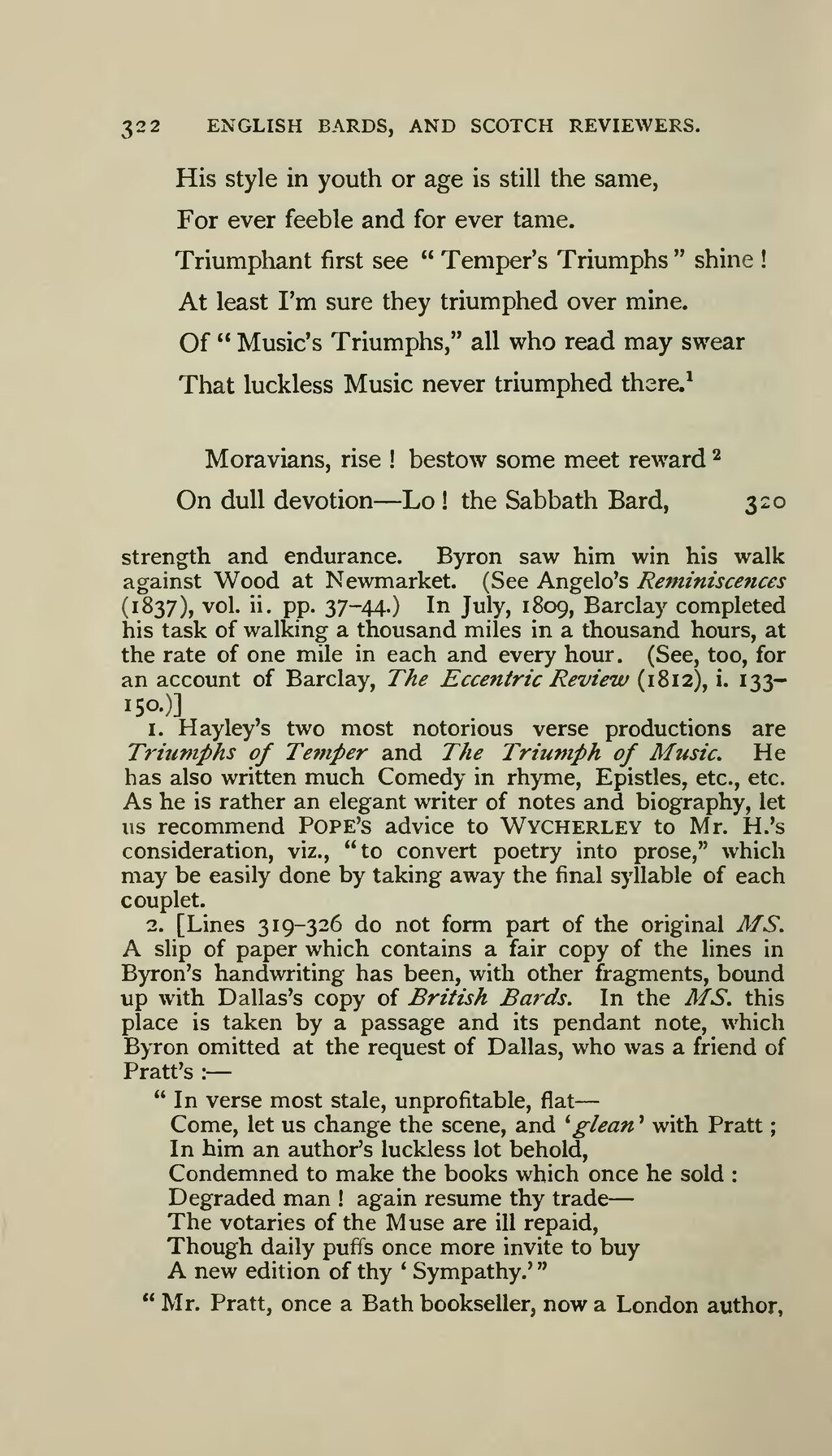322
ENGLISH BARDS, AND SCOTCH REVIEWERS.
His style in youth or age is still the same,
For ever feeble and for ever tame.
Triumphant first see "Temper's Triumphs" shine!
At least I'm sure they triumphed over mine.
Of "Music's Triumphs," all who read may swear
That luckless Music never triumphed there.[1]
Moravians, rise! bestow some meet reward[2]
- ↑ Hayley's two most notorious verse productions are Triumphs of Temper and The Triumph of Music. He has also written much Comedy in rhyme, Epistles, etc., etc. As he is rather an elegant writer of notes and biography, let us recommend Pope's advice to Wycherley to Mr. H.'s consideration, viz., "to convert poetry into prose," which may be easily done by taking away the final syllable of each couplet.
- ↑ [Lines 319-326 do not form part of the original MS. A slip of paper which contains a fair copy of the lines in Byron's handwriting has been, with other fragments, bound up with Dallas's copy of British Bards. In the MS. this place is taken by a passage and its pendant note, which Byron omitted at the request of Dallas, who was a friend of Pratt's:—
"In verse most stale, unprofitable, flat—
Come, let us change the scene, and 'glean' with Pratt;
In him an author's luckless lot behold,
Condemned to make the books which once he sold:
Degraded man! again resume thy trade—
The votaries of the Muse are ill repaid,
Though daily puffs once more invite to buy
A new edition of thy 'Sympathy.'""Mr. Pratt, once a Bath bookseller, now a London author,
